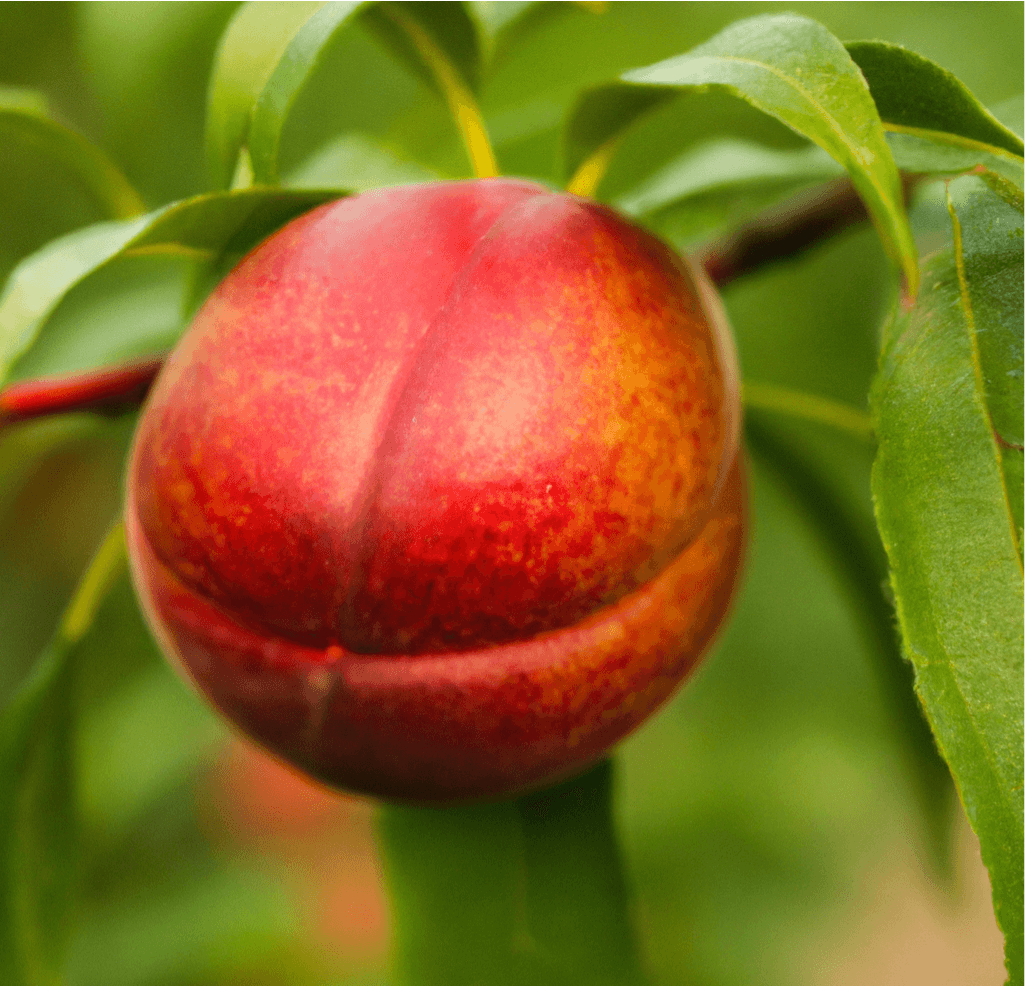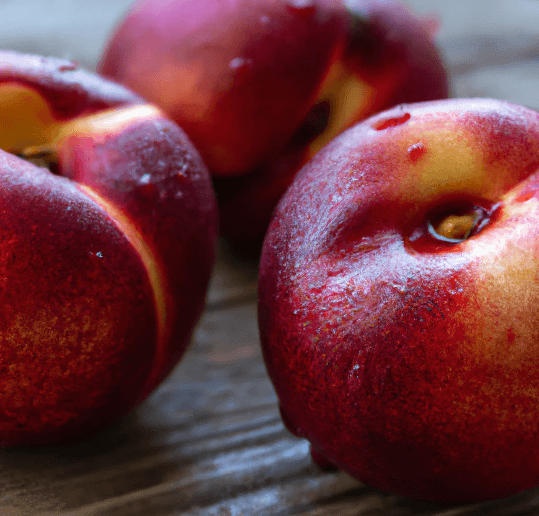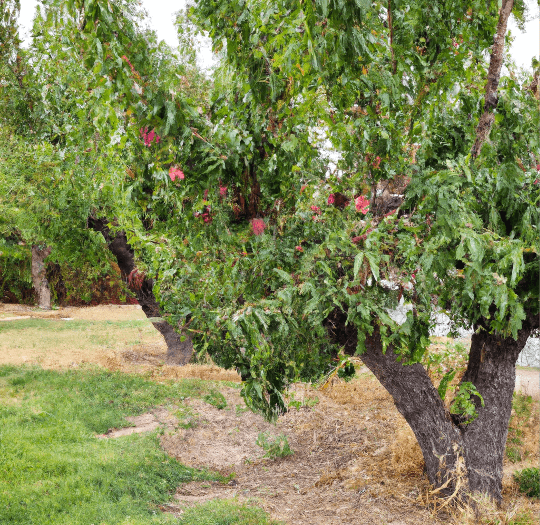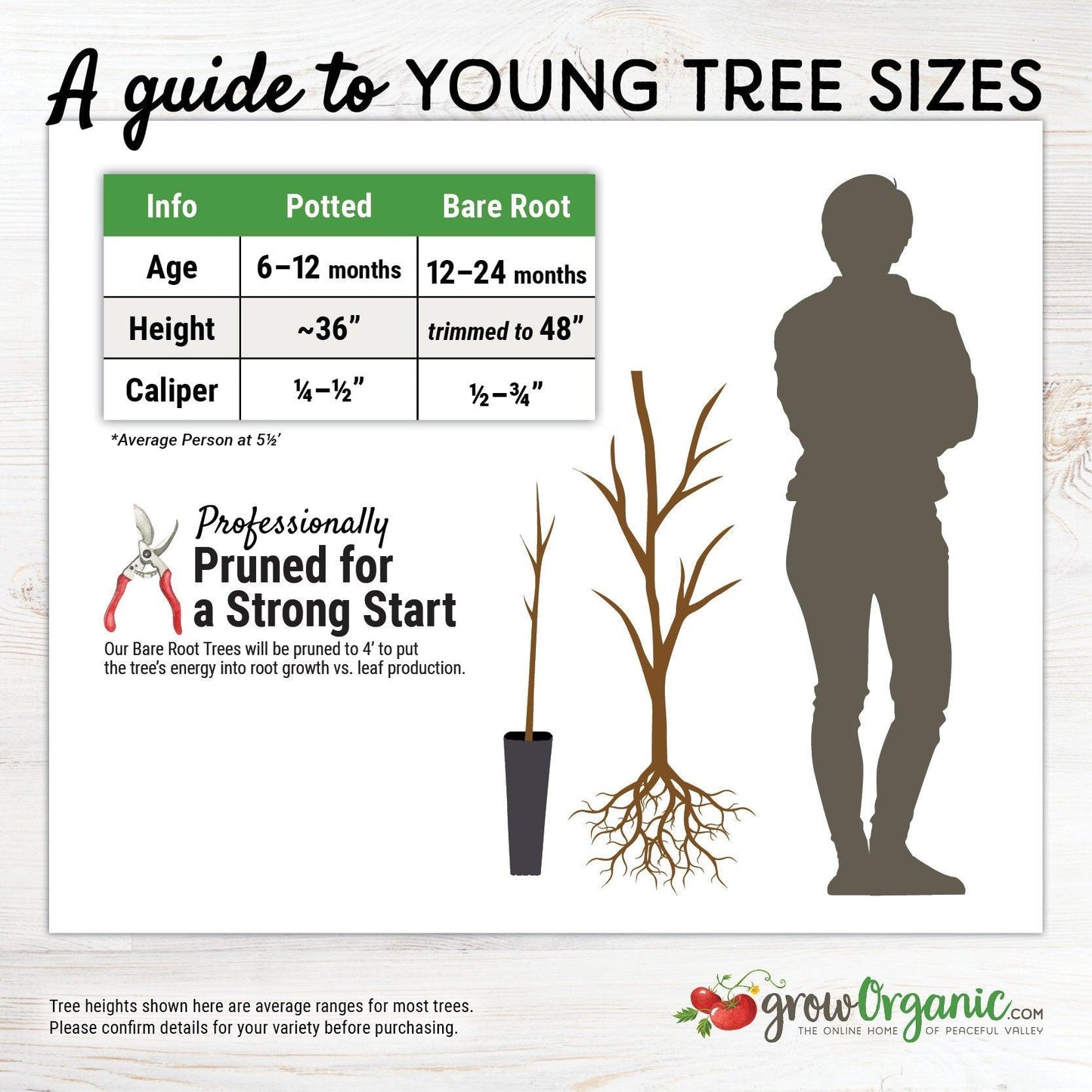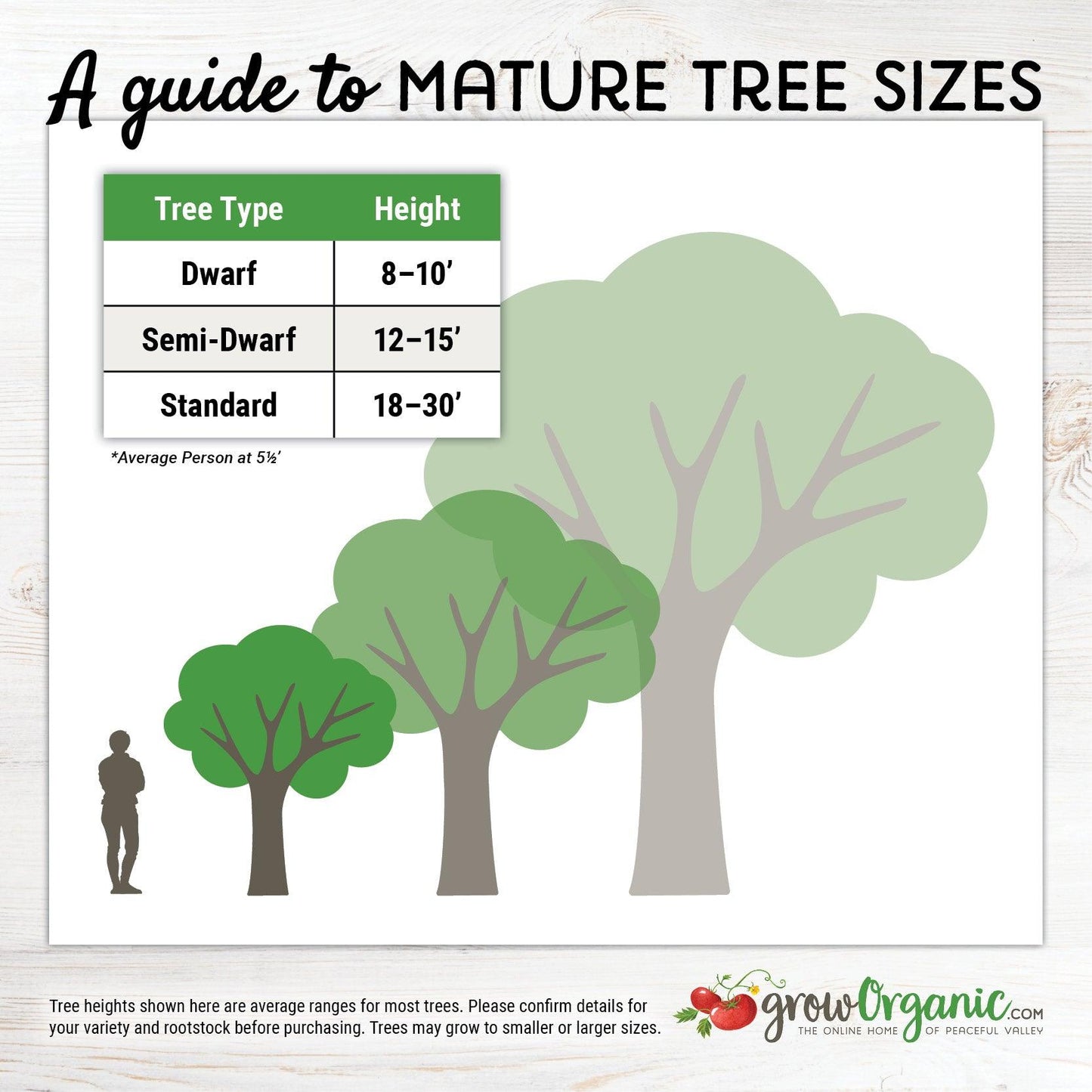Item Number: FT368P
Panamint Nectarine Tree (Potted)
Cold-hardy, tangy & sweet.
The potted Panamint Nectarine tree is a semi-dwarf variety that produces an abundance of delicious fruit. At its full height, it can also be wonderful patio tree. The fruit has a beautiful red skin with yellow-orange flesh and a sweet, tangy flavor. It is a popular fruit for fresh eating, baking, and canning.
The Panamint Nectarine tree is self-fertile, but cross-pollination from another variety will improve fruit set and size.
Nectarines have a fascinating history dating back thousands of years to ancient China. They were brought to Europe during the Roman Empire and later introduced to America by Spanish explorers. The Panamint Nectarine tree is a relatively new variety developed by the United States Department of Agriculture in the 1960s. It was named after the Panamint Range, a mountain range located in California.
In addition to being delicious, nectarines are also low in calories and high in vitamin C and fiber. They are a versatile fruit that can be used in a variety of dishes, including salads, pies, and jams. Nectarines are often substituted for peaches in recipes and can be used interchangeably in most cases.
Semi-Dwarf on Krymsk86 rootstock.
Panamint Nectarine Tree: A Sweet Addition to Your Orchard
The Panamint Nectarine tree is a delightful fruit-bearing plant known for its sweet, juicy nectarines. With its striking appearance and delectable fruit, this tree is a popular choice among fruit enthusiasts and home gardeners.
Appearance
The Panamint Nectarine tree is visually striking and makes a charming addition to any garden or orchard. This deciduous tree typically reaches a mature height of 12 to 15 feet and features a spreading canopy of glossy, dark green leaves. During the spring months, the tree bursts into a breathtaking display of fragrant pink blossoms, creating a stunning contrast against its lush foliage. These vibrant blossoms not only attract pollinators like bees but also add a touch of beauty to your outdoor space.
The fruit of the Panamint Nectarine tree is equally captivating. The nectarines are medium-sized with smooth, deep-red skin that encases the juicy, golden-yellow flesh. The attractive appearance of the nectarines adds to their appeal, making them a tempting choice for both fresh consumption and culinary use.
Taste and Texture
What truly sets the Panamint Nectarine apart is its exceptional taste and texture. The nectarines produced by this tree are renowned for their sweet, rich flavor with a hint of tanginess. They have a delightful balance of sugar and acidity, which makes them a favorite among those who enjoy a sweet and slightly tart taste. When ripe, the nectarines are incredibly juicy, releasing a burst of flavorful nectar with each bite. The flesh is smooth and firm, providing a satisfying, succulent texture that adds to the overall enjoyment of the fruit.
The Panamint Nectarine tree yields fruit that is not only delicious to eat fresh but also versatile in various culinary applications. Whether you choose to enjoy them in salads, desserts, jams, or preserves, the exceptional flavor and texture of these nectarines will elevate your culinary creations to a new level.
Distinguishing Characteristics
While there are several nectarine tree varieties available, the Panamint Nectarine tree stands out due to its unique characteristics:
Cold Hardy: One of the standout features of the Panamint Nectarine tree is its ability to thrive in colder climates. It is considered a cold-hardy nectarine tree, making it suitable for regions with cooler winters. This adaptability expands the range of areas where you can successfully grow this delightful fruit.
Self-Pollinating: The Panamint Nectarine tree is self-pollinating, which means it does not require a companion tree for cross-pollination. This makes it an excellent choice for smaller gardens or orchards where space is limited.
Low Chill Hours: This nectarine tree requires relatively low chill hours, making it well-suited for regions with mild winters. Low chill hour requirements mean that the tree will produce a bountiful crop of nectarines even in areas with shorter cold seasons.
The Panamint Nectarine tree is a visually appealing and fruitful addition to any garden or orchard. Its striking appearance, coupled with the sweet and tangy taste of its nectarines, makes it a sought-after choice among fruit enthusiasts. Additionally, its distinguishing characteristics, including cold hardiness, self-pollination, and low chill hour requirements, make it a versatile and accessible option for a wide range of climates. Whether you are a seasoned gardener or a novice, the Panamint Nectarine tree offers the opportunity to enjoy the pleasures of homegrown, delectable nectarines.


Check Your Zone Compatibility:
Compatible with your zone.
Growing Zone for

Our Guarantee To You
Since 1976, we've served our customers at every stage of growing. Please contact us at any time. We are happy to support and assist you.
Shipping Information
Shipping Information
Cannot ship to the following states: HI, AK, PR, GU, VI
Shipping Weight: 2.25 lb
Dimensions: 34.0"L x 3.9"W x 3.9"H
Features
Features
- Potted
Characteristics
Characteristics
Planting & Care
Planting & Care
Useful Information
Useful Information
Guarantee
Guarantee
We guarantee the perishable items we sell to be in good, viable condition when we sell them. Perishable items include, but are not limited to, garlic bulbs, flower bulbs, seed potatoes, onion sets & transplants, potted or bare root trees, vegetable crowns, etc. If your perishable item arrives in substandard condition, take photographs and please contact us within 3 days of the purchase date (or delivery date) and we will provide you with a refund of the purchase price (excluding shipping costs), or a replacement. Accordingly, we urge you to open any boxes marked as ""Perishable"" immediately upon receiving them and inspect the shipment thoroughly (do not crack open heads of garlic, we do not accept claims on cracked garlic). Because some perishable items can deteriorate very quickly, we cannot accept any claims beyond the 3-day time frame as it becomes too difficult to determine if these items were delivered in substandard condition, or if they turned into such substandard condition because of having been improperly cared for or stored once delivered.
Share
